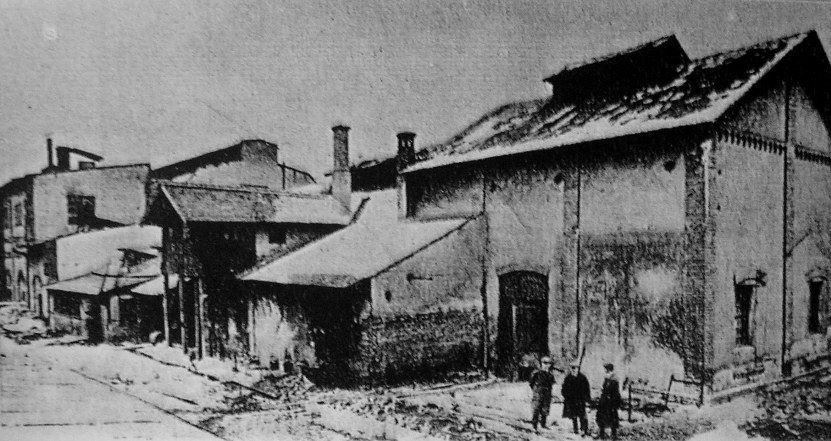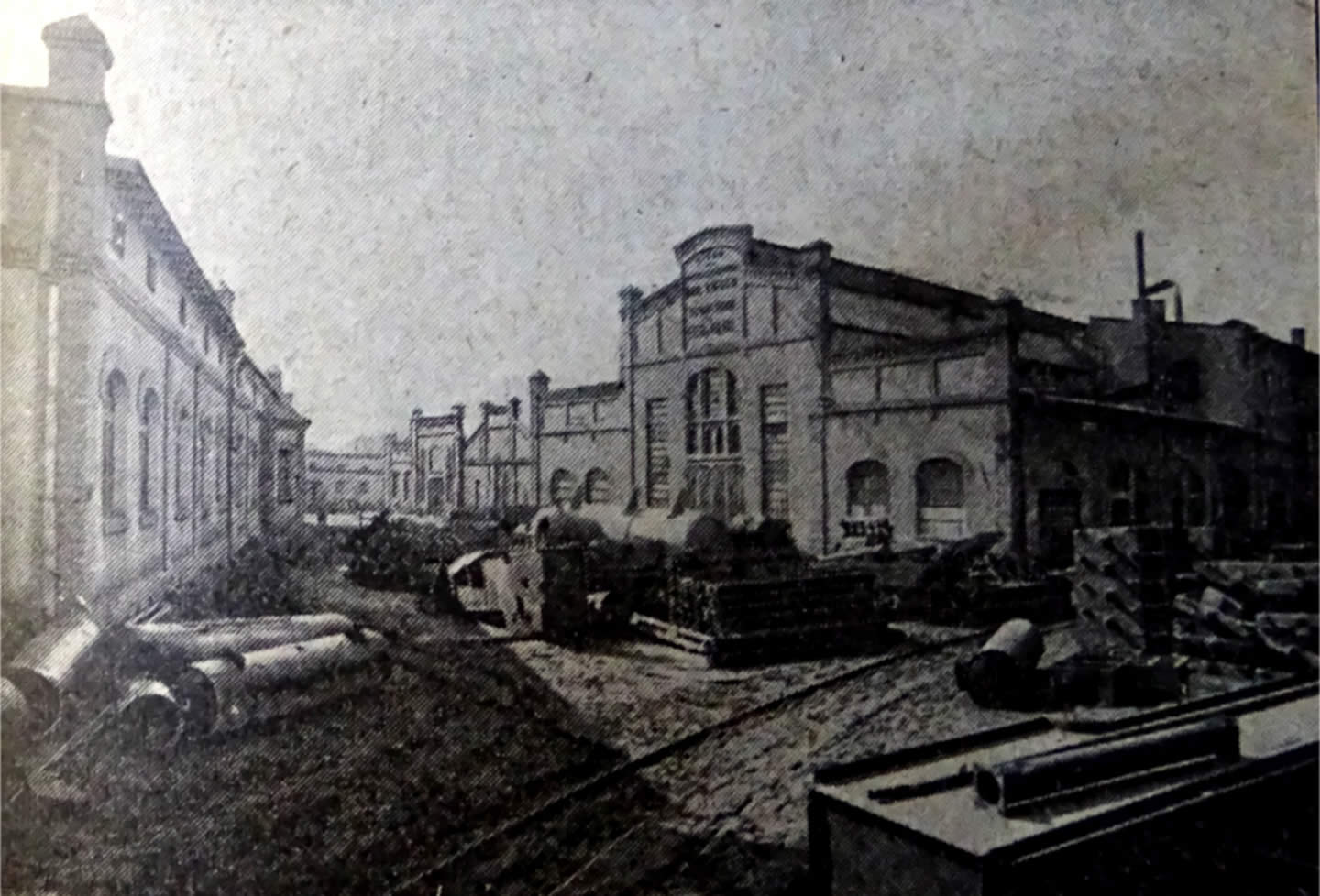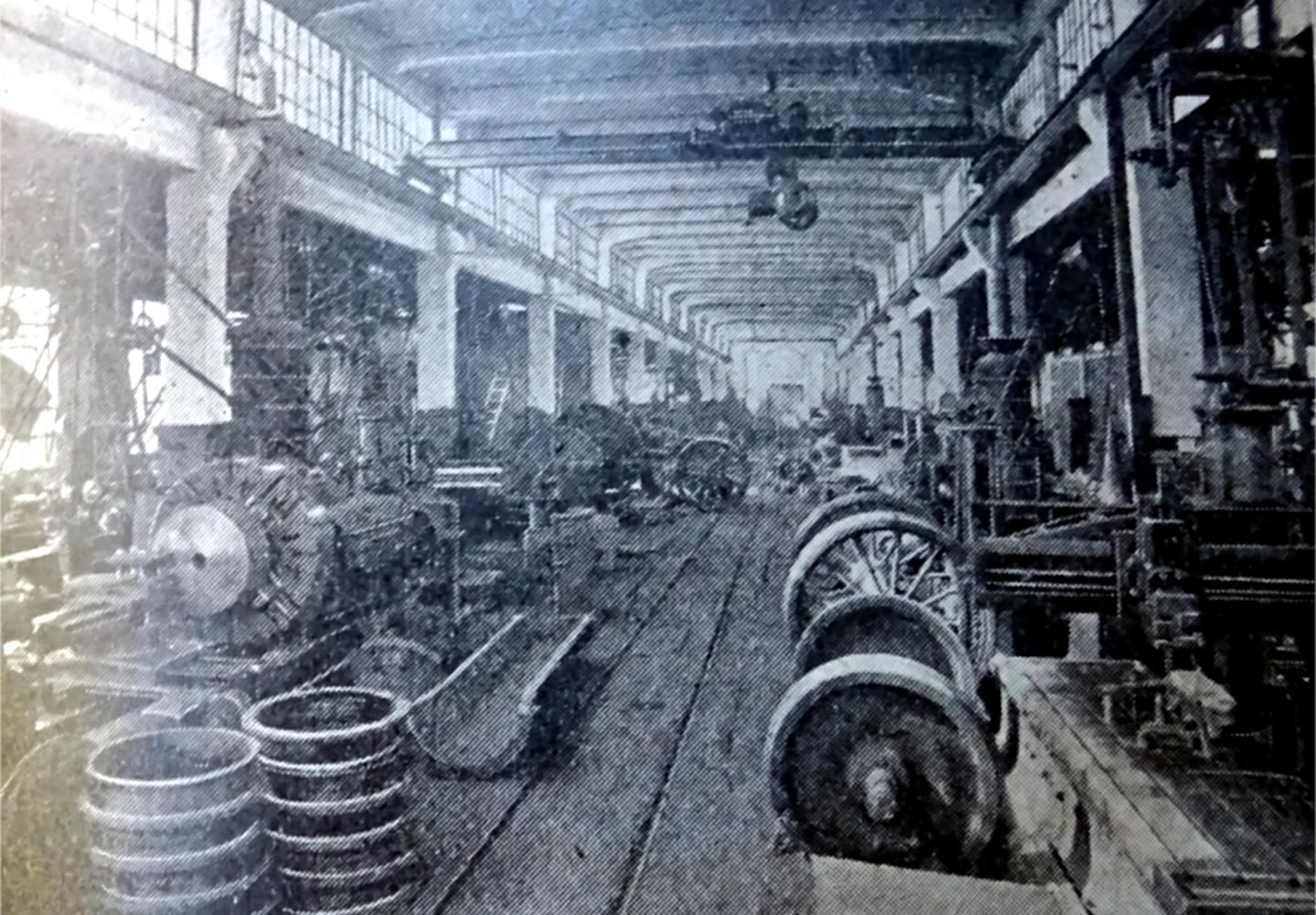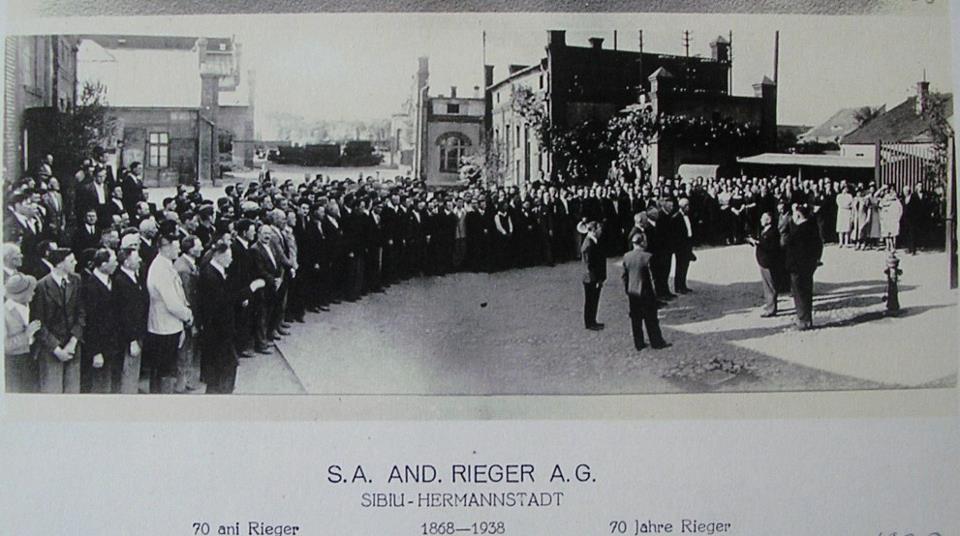Rieger Plants
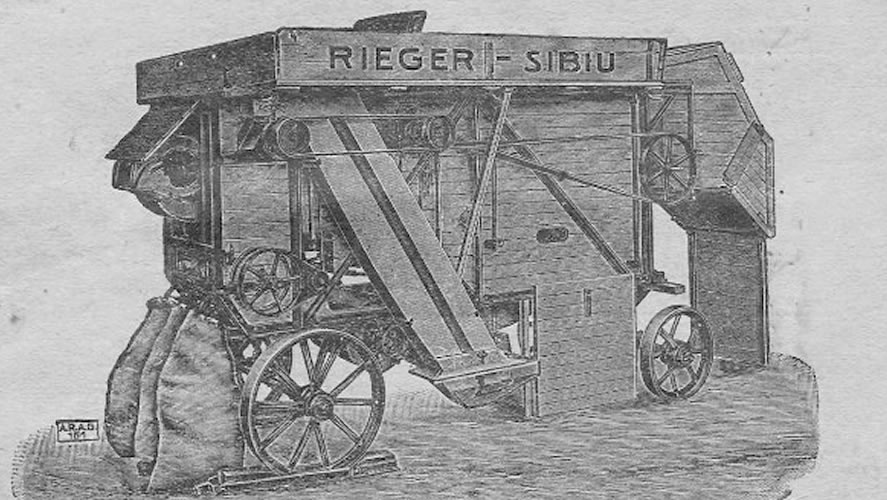
The enterprise known today as "Independenta" was founded in Sibiu in 1875 by the master blacksmith Andreas Rieger. The name chosen by Andreas Rieger for his enterprise was "The first Transylvanian factory of agricultural machinery and foundry iron", the name under which it operated until 1921.
Rieger began by producing the first changing plough with cast iron corman or steel strips, known as the "Rieger system" plough and sold it in Transylvania as the "Rieger patent". Over time, his product line has diversified and he started making the "Ruhadlo" plough changer from iron with wooden beam and forecarriage and the Bacskái plough, having the head, the iron and steel leg, used for work on slopped terrain.
Over the years, the company has undergone a series of extensions and modernizations; a store was opened to wholesale iron and lumber and was located in the space left free by destroying the old workshop built on the land between Cibin Street, Bastilia Square and the Students Ditch (Wood Market). Starting in 1894, new modern halls were built, by designs and plans of some Viennese architects.
The coming on board of Andreas Rieger's son, Richard, in 1903, and his appointment as director of the factory, in 1918, had led to changes in the structure and production process by introducing new working methods and techniques that resulted in increased production capacity.
The factory was equipped with two electric motors with a power of 13 HP and the number of workers employed increased. On the ground of the old foundry a new one was built, plus an assembly workshop (later expanded) and an iron plant and two new workshops were built on the premises of the old machine shop.
At the same time, the range of products expands to ploughs, harrows, manually and animal-towed vehicles for sowing wheat and corn, beet and fodder shredders, corn mill machines, manual textile machines and also ripples and fulling mills, joining pieces, underground and surface hydrants, drain covers, manhole covers, street fountains, etc.
The quality and competitiveness of the Rieger products has been recognized in national and international fairs, where they won medals and diplomas. In 1921, the anonymous society "Andreas Rieger car factories SA" ("Andreas Rieger AG Maschienenfabriken") was founded with the participation of the Romanian Bank, a German consortium and the assimilation of neighboring and competing factory "The first iron foundry and machine factory agriculture ", founded by Samuel Wagner, who at that time had gone bankrupt.
During the same year, the first and only file factory in the country was opened. It produced files, rasps and horseshoes and was equipped with machine tools imported from abroad. The further diversification of the production plant continues with the creation of tools for the small industry, such as hammer mills, cranes, pumps, sawing, threshing, engines and selectors, apart from the traditional production of household equipment.
The year 1939 marks the factory's entering in its third generation of Rieger family members, through Dr. Hanspaul Rieger, Richard's son, a graduate of an institute of agricultural machinery who joined his father in managing the factory until in 1948, when the factory was nationalized.
He demolished the old hall for repairing locomotives and wagons and built a new brick building in its place. He achieved the factory's highest goals of tying the farming tool hall to the assembly hall and also with the carpentry hall through a new building. He also expanded the laundry and foundry castings, which were equipped with drying rooms and bunkers for sand material.
If the years of World War II affect the factory through the militarization of production, the year 1944 brings an end to the branch in Timisoara and later to the entire company, as in 11 June 1948 nationalization occurs. The company's name is changed to "Independenta Enterprises" and several mergers occur (such as the one with the ex-factory "Virola", founded in 1855 by Friedrich Fabricius) and the building of new sections.

